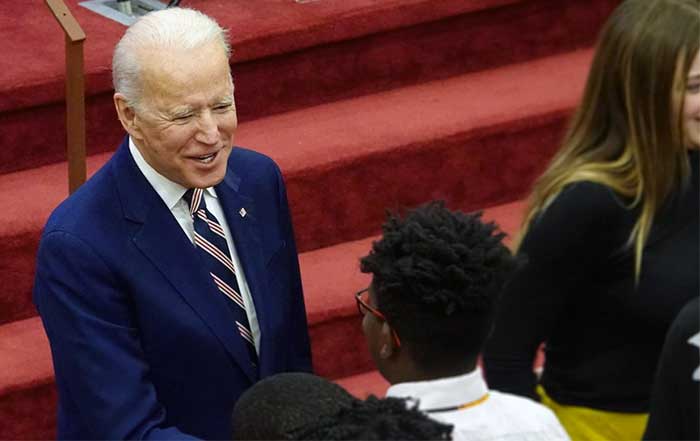Wall Street Celebrates Biden's $1.9 Trillion Stimulus Package But Fears
Things are now crystal clear- it's not all cheers for US President Joe Biden's newly launched historic $ 1.9 trillion coronavirus stimulus package; indeed, many describe this as "the investor's- double-edged sword" with many unintended implications. Of course, the new President's widely hailed economic stimulus plan- post the Trump administration – holds the potential to boost economic revival. But, as noted, most analysts are anxious about just how the nation will pay for this unusual package.
Ironically, the Wall Street gurus eagerly anticipated the new President's stimulus bold plan. No wonder, in the weeks after the Democrats seized control of the US Senate in early January, pundits noted that news about the much-anticipated stimulus package was directly instrumental in lifting the broad S& P index by almost 3%. Yes, this was widely hailed as positive- and most welcome- news.
But the unexpected was yet ahead- For starters, Bond yields are known to move inversely to prices. Hence-unsurprisingly- the impending moves - would be characterized by a significant slide in Treasuries. Why, pundits well understood that the only way the government could raise such funds was through creating more debts. Of course, such a move would push the crucial yields of benchmark 10-year notes to the highest levels. In turn, this would nudge the borrowing costs higher throughout the economic spectrum.
Soon, some industry insiders felt free to predict the apparent trends. For instance, Jeff Buchbinder, who is the LPL Financials' equity strategist, had this to say: "At the moment, the markets are generally celebrating the expected stimulus. Most analysts consider this a sure bet and a strong bridge leading to a fully reopened national economy. Regardless, there's a sobering chance that- on the other side- the markets should prepare to pay for this. How? "Simple: in terms of tax hikes that might cap equity valuations or much higher interest rates," he said.
Not surprisingly, already some investors are getting anxious about stock evaluations. Yes, many worry that- in the coming year- the earnings must be particularly strong; this is the only way to justify the hefty multiples. Significantly, the S& P 500 is already at about 22.3 times the forward earnings estimates. According to data from FactSet, this is nearly equal to the March 2000 all-time high of 24.4.
Interestingly, in December 2020, even before the new admiration had taken over, the S& P had dipped by almost 0.4%. By the beginning of January 2021, this went up by about 1.1%. We must also note that the year's rally was primarily characterized by cyclic stocks that typically benefit from stimulus package dynamics. Obviously, this includes banks- significantly, the banks have been up by more than 10% for the year, down to our times.
In the meantime, over the same time, the technology sector- which is among last year's winners- is down by almost 1%. There's no doubt that rising yields are now threatening to weigh heavily on longer-duration cash flow companies, including growth shares and tech.
Furthermore, pundits note that President Biden's bold economic stimulus plan- anchored on a courageous rescue package- is coming at a moment when companies and investors are forced to go back to the drawing board regarding their estimates on the projected time for the end of the pandemic. It's also coming when the US- like other leading nations- is slowly rolling out the Covid-19 vaccination program.
According to the US Labor Department, In January 2021, the initial unemployment rose considerably to 965,000. This is the highest level since August 2020. It's also-clearly- above the 795,000 figure earlier quoted by leading economists who spoke to Reuters. And in December 2020- for the first time in 8 months- the rate of job losses fell slightly, giving a ray of hope to many.
Regardless, as noted, rising bond yields are-in the meantime- raising anxiety about a looming inflation post the projected economic recovery schedule. Despite this, the US Federal Reserve Chairman, Mr. Jerome Powell, recently said that he doesn't expect the Central bank to commence the trimming of the monthly bond purchases "prematurely." Instead, Mr. Jerome said: "We should begin talking about the exit now- this is the right time."

